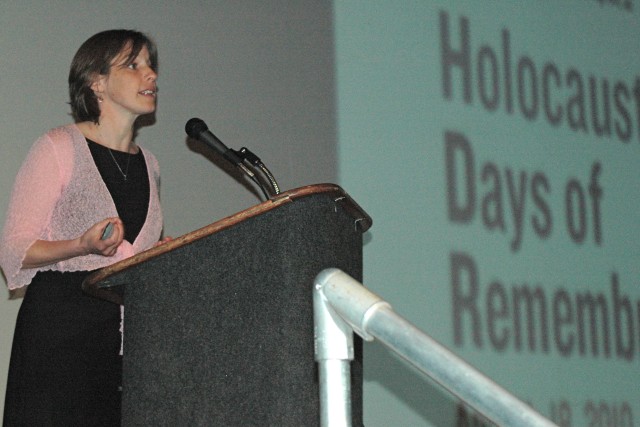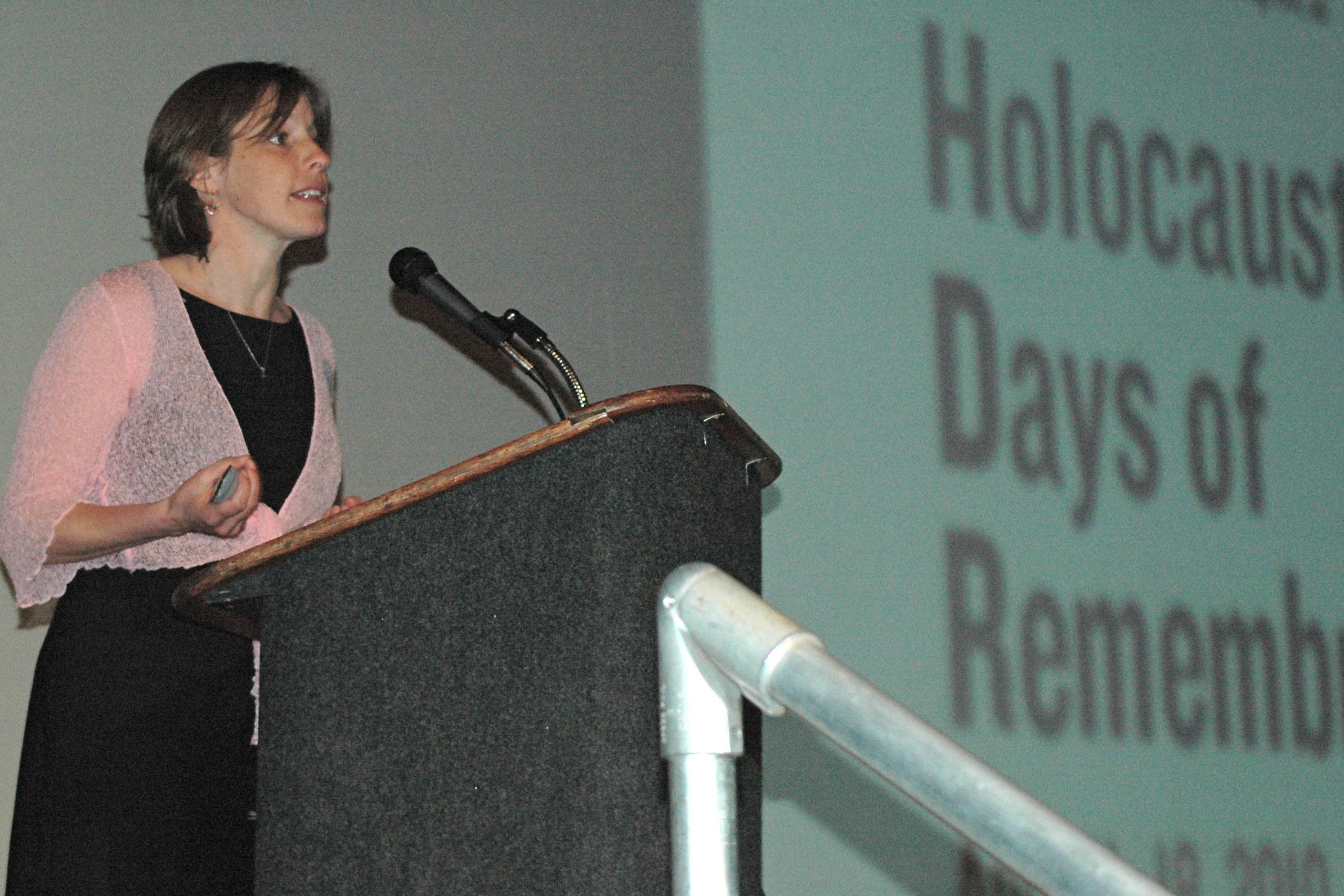
SCHOFIELD BARRACKS - The cataclysmic event known as the Holocaust might have been prevented if more people had courage to speak out against Nazi Germany's systematic, state-sponsored plan of extermination during World War II.
That was just one of the messages to emerge from the special observance, "Holocaust Days of Remembrance," held April 14, here, at Sgt. Smith Theater.
More than 200 Soldiers were on hand for the observance, held on the 65th anniversary of the liberation of survivors from many European extermination camps.
Through slides, short videos, diary entries and audio testimonies from survivors and their descendants, guest speaker Jennifer Ciardelli, program coordinator for the U.S. Holocaust Memorial Museum's outreach to military and government institutions, helped paint a vivid picture of the realities that faced Nazi Germany at the time.
Beginning with Adolph Hitler's rise to power and the ongoing legislation to marginalize and remove European Jews from society, continuing on with the propaganda machine that altered citizens' attitudes, and culminating with the development of overcrowded ghettos and concentration camps, Ciardelli aptly illustrated for audience members the rapid descent of Germany.
What was once a civilized democracy burgeoning with hope in the early 1920s, she noted, had spiraled into a decadent, genocidal state that ultimately carried out the annihilation of more than 11 million people, including six million Jews.
But it was the indifference among Germany's ordinary folks, who - as one survivor articulated in a short video - "followed orders without questioning," that puzzled event speakers and audience members.
"There's no denying that Hitler brought with him the capacity to create a cult of followers," Ciardelli noted. "But to say ... and I've heard people say this ... that Hitler was in charge, what else could they do' Or (to say) that everybody was brainwashed, well, I don't think it was that easy."
"People look back at the Holocaust and jump to Hitler and then jump right to the concentration camps," said Col. Dana Tankins, commander, 516th Signal Brigade, who provided closing remarks for the event. "But going through history, we can see it was a lot more complicated than that.
"It was a total failure in social norms and values. It was a failure in respect and dignity for human life," Tankins said.
She added, if more people had taken a firm stand against such barbaric behavior, and if more people had repudiated what event master of ceremony Sgt. 1st Class Eli Handler, health care specialist with the 94th Army and Air Missile Defense Command, called "the most offensive four-letter word - hate," history might have been altered.
"(But) people didn't do that; people followed the flow," Tankins said. "And we saw what the outcome was."
At the time, the fabric of German society was not "made up of sadistic monsters," according to Ciardelli.
"This was a society that was well-esteemed throughout the world. In the 1920s and 30s, it was well educated. It had prime music, culture and theater. In fact, American Soldiers who were serving in World War II, in their letters back home, talked about how much they preferred Germany over Britain or France in terms of its environment," she explained.
"It's clear that if Hitler in 1933 had proposed opening Auschwitz (concentration camp) and having a killing facility, that would not have been accepted," Ciardelli continued. "Something happened in society that changed people's attitudes and minds."
In remembering one of the most tragic events in recorded annals, Ciardelli said that it was most important to learn from history's tragic mistakes.
It's precisely why the U.S. Holocaust Memorial Museum is often referred to as "a living memorial," she explained.
"If all we do is memorialize and think about the past, it doesn't mean much for us in the contemporary," she said.
"So the challenge is," Ciardelli added, "for us to think about this history and to think about the points of relevance to us."
The 516th Signal Brigade and Team Equal Opportunity Hawaii sponsored the event.

Social Sharing